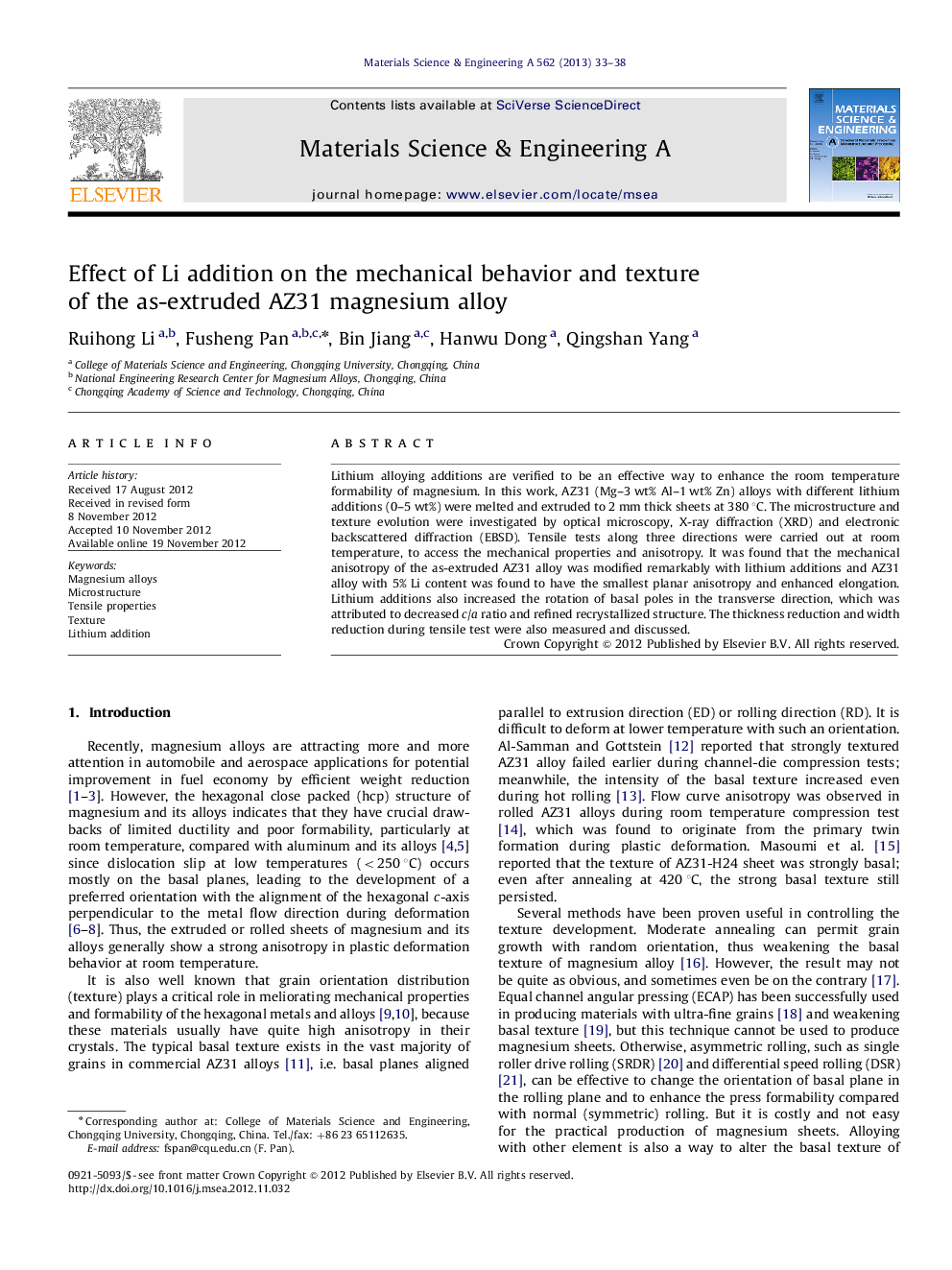| Article ID | Journal | Published Year | Pages | File Type |
|---|---|---|---|---|
| 1576596 | Materials Science and Engineering: A | 2013 | 6 Pages |
Lithium alloying additions are verified to be an effective way to enhance the room temperature formability of magnesium. In this work, AZ31 (Mg–3 wt% Al–1 wt% Zn) alloys with different lithium additions (0–5 wt%) were melted and extruded to 2 mm thick sheets at 380 °C. The microstructure and texture evolution were investigated by optical microscopy, X-ray diffraction (XRD) and electronic backscattered diffraction (EBSD). Tensile tests along three directions were carried out at room temperature, to access the mechanical properties and anisotropy. It was found that the mechanical anisotropy of the as-extruded AZ31 alloy was modified remarkably with lithium additions and AZ31 alloy with 5% Li content was found to have the smallest planar anisotropy and enhanced elongation. Lithium additions also increased the rotation of basal poles in the transverse direction, which was attributed to decreased c/a ratio and refined recrystallized structure. The thickness reduction and width reduction during tensile test were also measured and discussed.
